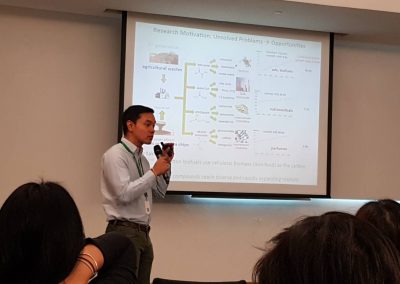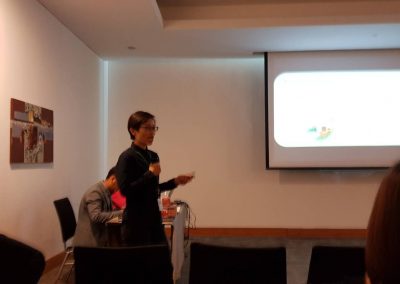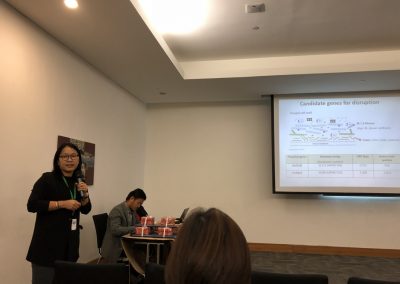3rd #AMBC Update: #ResearchHighlights
Today (25 Apr 2018) is the second day of The 3rd Asean Microbial Biotechnology Conference (AMBC) in Kuching, Sarawak, Malaysia.
We’ve got hightlights of interesting research works in biorefinery technology as follows:
1. Cell wall changes improve bioproductivity of Aspergillus oryzae by Dr. Sukanya Jeennor (BIOTEC, Thailand).
A. oryzae is one of the most famous food fungi. It is used in production of soy sauce, fermented bean paste and sake. Dr. Jeennor found that genetically-engineered Ags1 gene caused crucial changes in A. oryzae’s cell walls, resulting in smaller fungal pellets. Being smaller pellet means more active in oxygen absorption, ultimately leading to higher productivity of A. oryzae. This discovery may pave the way to high-yield A. oryzae strains. Very good news ’cause everyone wants more sake. Right?
2. Producing biofuels with single-cell bioprocess by Dr. Weerawat Ranguphan (BIOTEC, Thailand).
Dr. Ranguphan devised a sophisticated method to make a better biofuel cell factory. He “hijacked” the natural valine biosynthesis in Pichia pastoris using the conventional gene reconstitution and modern CRISPR-Cas9 fine-tuning. His new genetically-engineered yeast can effectively produce isobutanol without needs of another helper microorganisms or chemicals. Dr. Runguphan expects that his work will be useful in converting agricultural wastes to biofuels.
3. Making Aspergillus oryzae production system antibiotic-free by Sarocha Panchanawaporn (BIOTEC, Thailand).
Currently the growth of microbes in biorefinery is controlled by antibiotics. The excessive use of antibiotics causes concerns among environmentalists and communities. Ms. Panchanawaporn developed a quick and relatively easy CRISPR-Cas9-based method to make a uridine-auxotrophic strain of Aspergillus oryzae (i.e., it cannot grow in uridine-depleted substrates). Her work shows the promising possibility of antibiotic-free future.
4. Finding the suitable thermotolerant yeast strain in protein-production cell factory by Dr. Sutipa Tanapongpipat (BIOTEC, Thailand)
Since 2009, BIOTEC Researcher team led by Dr. Tanapongpipat had searched for the yeast strain most suitable for protein production. After a long and arduous work, her team finally found “the one”, the strain to rule them all. It is the thermotolerant strain of Ogataea thermomethalonica. This yeast strain possesses specific gene promoters which can be active at various temperatures ranging from 30 to 40 degrees celsius. Some enzymes of this yeast, e.g., phytase and xylanase, has higher activity than those of conventional S. cerevisiae (Baker’s yeast). Moreover, O. thermomethalonica has a stable capability to integrate plasmid into its own cell, thus scientists can transfer genes from other organisms into O. thermomethalonica and harvest the proteins easily and reliably. Even at a laboratory scale, this yeast strain shows very bright capability in industrial applications.





